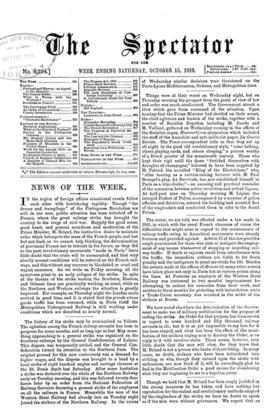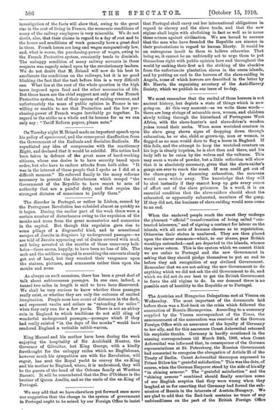Though we hold that M. Briand has been amply justified
in the strong measures he has taken, and have nothing but reprobation for the violent and revolutionary methods adopted by the ringleaders of the strike, we have no desire to speak as if the men were without grievances. We expect that an
investigation of the facts will show that, owing to the great rise in the cost of living in France, the economic conditions of many of the railway employees is very miserable. We do not doubt, also, that their claims in regard to a day of rest and to the hours and conditions of work generally have a great deal in them. French hours are long and wages comparatively low, and, what is worse, the purchasing-power of wages, owing to the French Protective system, constantly tends to diminish. The unhappy condition of many railway servants in these respects was eagerly seized upon by the revolutionary leaders. We do not doubt that M. Briand will now do his best to ameliorate the conditions on the railways, but it is no good blinking the fact that the task before him is a very difficult one. What lies at the root of the whole question is the high taxes imposed upon food and the other necessaries of life. But those taxes are the chief support not only of the French Protective system, but of their system of raising revenue, and unfortunately the mass of public opinion in France is un- willing or unable to see that Protection and the low pur- chasing-power of French wages inevitably go together. In regard to the strike as a whole and its lessons for us we can only say : "Tariff Reform papers, please note."















































